England's first free schools open their doors to pupils
- Published
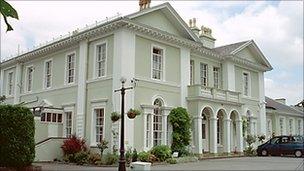
The Krishna-Avanti school says it would like its intake to be 50% Hindu and 50% other faiths
Some of England's first "free schools" are opening their doors to pupils.
Twenty-four are due to open in the next few weeks - the majority next week.
On Thursday, lessons will begin at two schools - Aldborough E-ACT primary in Redbridge, London, and the Hindu Krishna-Avanti primary in Leicester.
The government says the state-funded but semi-independent schools will improve standards but critics say they will take pupils and money from other schools at a time of cut-backs.
Free schools are very similar to academies in that they do not have to follow the national curriculum, can vary the pay and conditions of teachers, are directly funded by central government and are outside of local authority control.
Summer holiday
The Aldborough free school is being set up by the E-ACT charity which already sponsors 11 academies.
It is opening with a reception class and a Year 1 class in a refurbished school building. E-ACT said that there was a shortage of school places in the area and approached the council to run a school.
Principal Nicola Percy said she was delighted by the reaction the school has had.
As a ribbon was cut to open the school officially, she told parents and pupils: "I am absolutely over the moon. This morning I was so excited, I was shaking."
She thanked parents for their "support, enthusiasm and fund-raising ideas". Children and their parents were invited in to get a taste of the school before lessons start properly on Friday.
Asma Zeeshan, whose five-year-old daughter is going to the school said: "The school is really good. It's better than I expected.
"We saw the building on the internet and it looked old, but inside it's really modern."
Alborough is one of the new free schools changing the school year by having a shorter summer holiday (one month) with longer half-term breaks in the autumn and spring (two weeks each).
Mark Greatrex, from the group, said: "We are taking a week off each side of the summer holidays. The holidays are too long. They were made that long so children could help with the harvest."
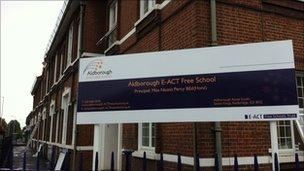
The Redbridge free school will offer an extended day and different school year
There will be an optional extended day - with an educational slant - says Mr Greatrex, who will be the leader of the school's governing body.
Children could be at school from 08:00 to 18:00 - and could find themselves in extra lessons after school if they are not making enough progress.
"Teachers' focus will be on high attainment and they will track pupils' progress in every lesson. If a child does not make enough progress in a lesson, they will be asked to stay later that day," said Mr Greatrex.
He says the after-school activities will be "fun, with an educational slant". For example, children playing cricket or rounders will have to do some mental arithmetic.
In Leicester, more than 30 four and five-year-olds will have their first full day at the Krishna-Avanti school on Thursday. They had a taster session at the school with their parents earlier in the week.
The school has been set up by the I-Foundation, which promotes state-funded Hindu education in the UK, in a grade II listed building, bought by the Department for Education.
There will be an emphasis on getting children to read "reasonably well" by the end of Year 1 (age six) and children will practise yoga and meditation and eat vegetarian meals.
Finishing touches
The new principal is a Christian, Christopher Spall, who says the aim is for the school eventually to be half Hindu and half other faiths.
"I think there are an enormous number of parallels between Christians and Hindus," he said.
"We don't want to convert anyone but to create an understanding, so that people get on better and respect each other."
This year's applications were mainly from Hindu families, Mr Spall says, but he thinks that will change.
Teaching unions oppose the policy of creating free schools, which they say will break up the state education system.
Mary Bousted, the general secretary of the Association of Teachers and Lecturers (ATL), said: "The free school policy is completely undemocratic and a huge waste of public money, established regardless of need, with contempt for the local community while privileging small sectional interests.
"[Education Secretary] Michael Gove... cannot know whether this disparate group of sponsors, including many minor faith groups, is capable of providing a good balanced education."
Of the 24 free schools opening this month, about six are being set up by faith groups, a similar number are parent- or teacher-led and five will be run by trusts already running academies.
Four are private schools transferring to the state sector. Some schools fit in to more than one group.
- Published28 August 2011
- Published1 September 2011
- Published10 June 2011
- Published27 May 2011
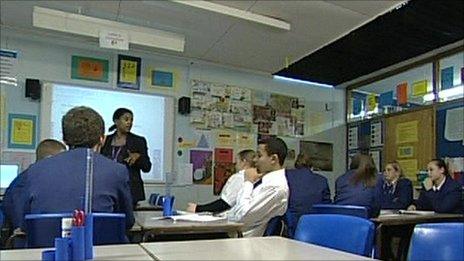
- Published9 March 2015
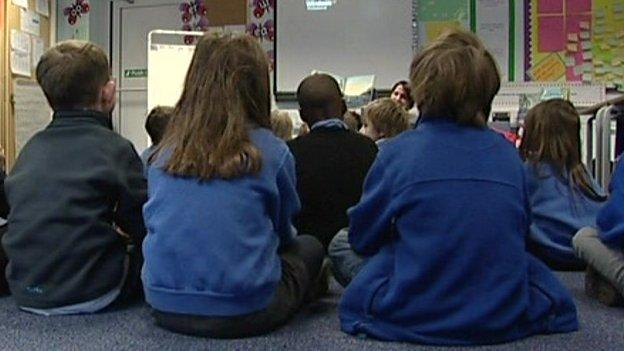
- Published13 May 2011
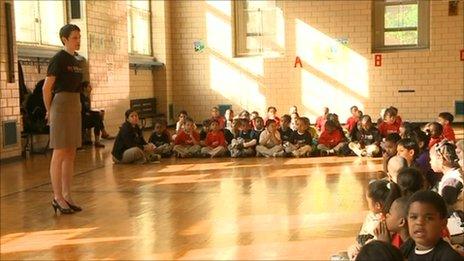
- Published27 May 2011

- Published2 March 2011
- Published16 June 2011
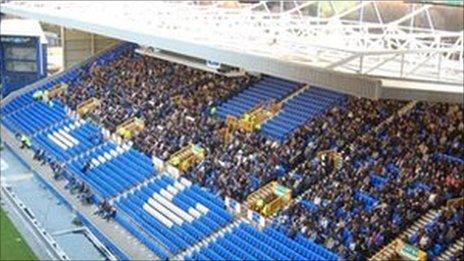
- Published13 June 2011
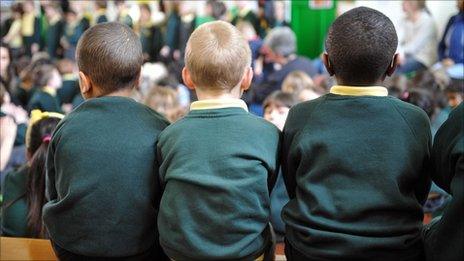
- Published20 May 2011
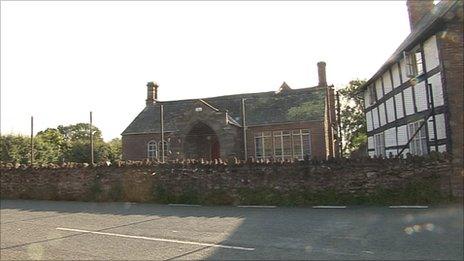
- Published6 June 2011
- Published14 June 2011